#Abraham Lincoln bookend
Text

SofiasCobwebMuseum
#1920s cast iron bookend#Abraham Lincoln bookend#antique bookend#antique doorstop#1928 Connecticut Foundry
0 notes
Link
Check out this listing I just added to my Poshmark closet: Bookend President Abraham Lincoln vintage copper coating heavy Cast metal posh.
0 notes
Text

"THE BEST WAY TO DESTROY an enemy is to make him a friend." - Abraham Lincoln
"I'M ONLY HUMAN" is my concocted self-defense against my failure to live up to the intent of this Quote by Lincoln. I tend to want to cut off HIS nose (not Lincoln's nose! lol) to spite MY face. It's sad and a little bit embarrassing, and yes, the truth hurts.
My Pollyanna Defense died on the vine. GRUDGE is an Animal and I have raised it well.
Better Sober than Drunk. Better today than yesterday. Better tomorrow, I can only hope, my friend. I can only hope.
*****ALL DRINKING ASIDE: The Destruction, Deconstruction & Reconstruction of an Alcoholic Animal
Find it on Amazon. Book it here: http://amzn.to/1bX6JyO
#alcoholism #addiction #recovery #books
All Drinking Aside bookends each of its 90 Chapters with Quotes by the Famous, Infamous & Anonymous.
This Quote by Abraham Lincoln (pictured) opens Chapter 86 (Memory-Go-Rounds) of All Drinking Aside.
Resolve to read it. Explore your own mind within its pages. Check out the 5 Star Reviews on the Amazon page while you're there: http://amzn.to/1bX6JyO Enjoy.
0 notes
Text
I often think about how the first successful American presidential assassination featured really cool contenders, like an actual celebrity from an acting family and Abraham fucking Lincoln, and then the next two assassinations pretty much boiled down to, like, just some guys. The JFK one seems like its whole separate thing. But anyway Sondheim & Weidman were lucky they had John Wilkes Booth & Lee Harvey Oswald as bookends at the time of their writing because imagine leading with Guiteau lol.
46 notes
·
View notes
Photo
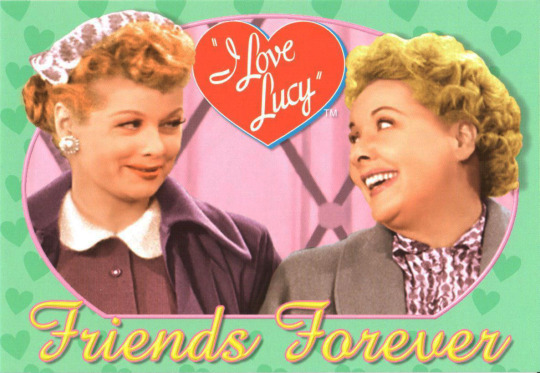
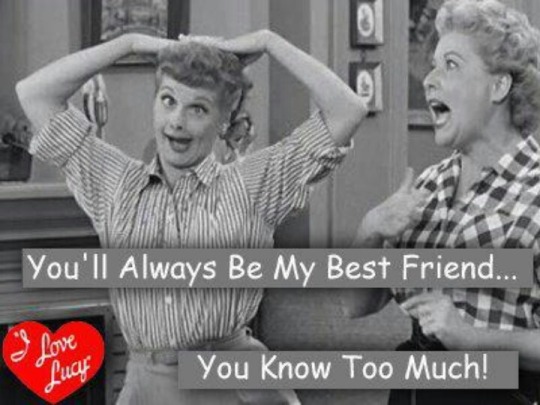


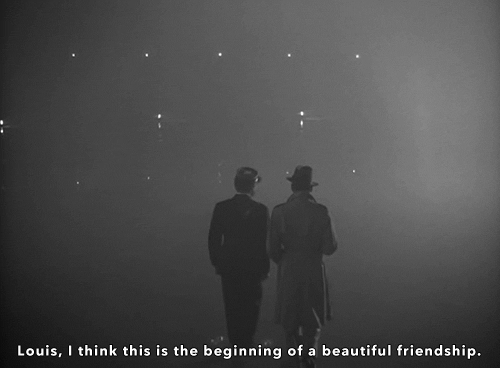
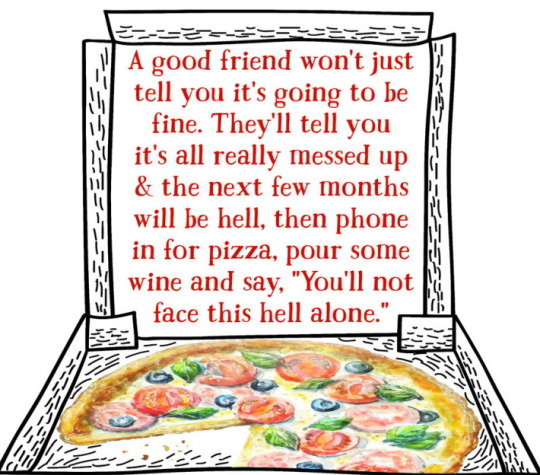
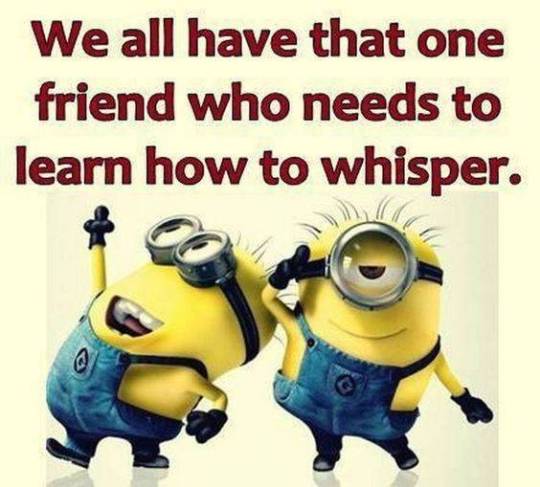

Friends
My new old friend. An odd formulation. And yet….
The Hedgehog Review Wilfred M. McClay
I hadn’t ever considered the matter until a few years ago, when I heard a dreamy little number by the jazz pianist Alan Pasqua called “My New Old Friend.” It’s a strictly instrumental affair, a subdued and contemplative piano trio, full of subtle unresolved suspensions and wafting dissonances, conveying a late-night mood of solitary and slightly bittersweet remembrance—one of those moments of quiet grace when the passage of time slows to a crawl, past and present seem to intermingle, and joy and sorrow become hard to tell apart.
But it was the song’s title that captured my attention, even more than the music itself. My new old friend. An odd formulation. But one I’d been looking for, without even knowing it.
It’s not obvious to me why I should have been looking. In a different moment, I would have been far more likely to react against the phrase, striking it down with a reflex of indignant linguistic puritanism. After all, the noble term friend has already been so diluted and cheapened in our times, like so many of our most important words of personal and social connection, that it has become like the Platte River, a mile wide and an inch deep. Such cheapening has occurred not only in our personal usage but in public discourse. When Abraham Lincoln concluded his First Inaugural Address with a heartfelt plea to the seceding Southern states to recall that “we are not enemies, but friends,” the word had great emotive power, describing the very bonds of public affection that were being sundered. Such earnest usage has all but disappeared. Friend as we now use it embraces a particularly large portfolio of evasions and line-blurring maneuvers, especially useful in the hands of diffident teenagers, as in this familiar exchange: Mother: “Who was that on the phone?” Daughter: “A friend.”
As this example illustrates, friend can designate anything from a mysterious or otherwise uncategorizable love interest to a study-group classmate to a business associate to a helpful neighbor to the “friends” who accumulate on people’s social media accounts, where they are as plentiful and enduring as the daily harvest of low-tide sea shells on a beach. The television series Friends (1994–2004) became one of the most successful sitcoms in TV history by depicting a collection of very attractive twenty- and thirtysomethings “hanging out” together as a kind of quasi-family, a light and frothy fantasy that transposed the social life of the college dorm to not-quite-adult life in implausibly toney Manhattan apartments. For its characters, friendship was that relatively flexible and easygoing state of social relations before the hardening categories of adulthood come along.
This resonated with American audiences, including aging boomers who were nostalgic for the friendships of their college days. But when we’re confronted with the far profounder ideas about friendship put forward by Aristotle, the greatest of all writers on the subject, or by C.S. Lewis in his splendid account in The Four Loves, we tend to be nonplussed. Such heights seem beyond us. For Lewis, Friends would have to be considered a show about companions, not friends, since friendship is something weightier and inherently exclusive. In this, Lewis was in tune with the earlier observations of Aristotle: “Great friendship too can only be felt towards a few people…. One cannot have with many people the friendship based on virtue and on the character of our friends themselves, and we must be content if we find even a few such.” Far from being something breezy and easy, like a glass of sparkling spring wine, friendship in the fullest sense is a rare and precious thing, much more like an old single-malt Scotch.
As I’ve said, the Platte River principle has come to apply to many of our words of human connection, perhaps partly reflecting the automatic generosity of the democratic spirit, and also the way we employ the language of false personalization in our speech, routinely appropriating the most charged words in doing so. Some of this is vaguely sinister, as when corporate bosses try to persuade us to think of ourselves as part of “the Sprocket Corporation family,” especially at times when the budget needs cutting. Community is a word that comes in for similar abuse, and has been almost emptied of meaning in this respect, standing for any aggregation that it is politically or financially useful to treat as an aggregate. Here, as in the use of the language of family and almost any other affective term, Silicon Valley has led the way to perdition.
So you can see why I would be initially averse to the idea of “new old friends,” which might sound at first like more linguistic inflation, the equivalent of preripped jeans or “distressed” furniture, something new that is made out to look old, and thus is doubly phony. To make matters worse, as my old friends can readily confirm, I have for years been prone to saying, in an earnest imitation of Shakespeare’s Polonius, that “you can always make new friends, but you can never make new old friends.” And it’s true. There is something irreplaceably special about the people who have been down the road with you—those friends thou hast, and their adoption tried—and whose friendship has endured through the sheer passage of years, through the steady artillery of time, even if such friendships lack the lively intensity of newer ones. People who “knew you when” can never be replaced, and a wise person will not seek to do so.
But such friendships have their limitations. For one thing, it’s not always helpful to be reminded constantly of who you were “then.” Life does move on. And there is also something very true in the Simon and Garfunkel song “Old Friends,” about the two men who “Sat on their park bench like bookends…. / Winter companions… / Lost in their overcoats / Waiting for the sunset…. / Memory brushes the same years / Silently sharing the same fear.” There is a bond being described, if an unutterably sad and resigned one. It is an existential bond of the deepest and most universal sort. But there are some respects in which this “old friendship” falls short of the fullness of friendship as Aristotle and Lewis describe it.
And here I come to the heart of the matter: There is no denying the phenomenon of a new old friend. I have acquired a couple of them in recent years, people with whom I have found a near-instant bond whose depth is hard to explain, whose friendship feels as old and rooted as an ancient sequoia, even though I know it is as new as a sapling. Moving about in such friendships, I’m wary at first, thinking they may be too good to be true, fearing to trust too much in the sensation of oldness, fearing, much as one fears when living in a foreign culture, that my habitual ways of being will suddenly be misperceived or strike the wrong note. There is something deeply mysterious about such friendships, and mystery induces caution, as well as awe.
But perhaps the mystery has to do with the mystery of friendship itself. Lewis remarks that what finally hold us together as friends are not the “unconcerning things,” facts of biography and shared experiences. Of course, one brings the residue of all such things to the activity of friendship. But the friendship itself stands apart from such things. It concerns itself, Lewis argues, with nothing less than a shared quest for the truth about things. In the very act of sharing in this one thing, friends gain access to an astonishing degree of freedom. “In a circle of true Friends,” Lewis insists, “each man is simply what he is: stands for nothing but himself”:
That is the kingliness of Friendship. We meet like sovereign princes of independent states, abroad, on neutral ground, freed from our contexts. This love (essentially) ignores not only our physical bodies but that whole embodiment which consists of our family, job, past and connections.
Friendship represents a rare kind of freedom, an “exquisite arbitrariness and irresponsibility,” as Lewis puts it, precisely because it liberates us into a way of being fully human that rises above all the desiderata and conditioning factors that otherwise impinge upon us, the very factors that form what we are now accustomed to call our “identity.” But why shouldn’t an entirely new friendship have that power, as much as an old one has? Or perhaps…even more, since it is no longer the facts, but rather the search, the quest, that the new old friends share?
Lewis was not alone in connecting the disinterested love of truth and goodness with the highest forms of friendship. “The real community of man,” wrote Allan Bloom in The Closing of the American Mind, “in the midst of all the self-contradictory simulacra of community, is the community of those who seek the truth, of the potential knowers, that is, in principle, of all men to the extent they desire to know.” Bloom, too, understood that the quest for truth is what unites us most deeply and most reliably. The greatness of the Great Books, in his view, was their ability to lift our minds and thoughts out of the realm of contingency and “fact,” into a realm higher and more essential, more conducive to the flourishing of friendship—not as a goal of the quest, but as a byproduct of it.
Maybe this way of phrasing it will sound too specific to the academic world. And not everyone has the time or inclination to reread Plato’s Republic every few months (preferably in Greek). But the larger truth, that the deepest friendship can take root in the sparsest biographical soil if some high and shared animating spirit is present, seems right. I’m guessing that’s how we make new old friends. Though in the end, it is a mystery.
Wilfred M. McClay is G.T. and Libby Blankenship Chair in the History of Liberty and director of the Center for the History of Liberty at the University of Oklahoma. His latest book is Land of Hope: An Invitation to the Great American Story (2019).
https://getpocket.com/explore/item/friends
2 notes
·
View notes
Text
fic/rp prompts, 1/?
Criminal Minds bookend quotes, Season 1
i’ve got writer’s block so i’m binge-watching again and you can all suffer with me
(starred quotes (*) are spoken, not voiceover)
1.
“The belief in a supernatural source of evil is not necessary. Men alone are quite capable of every wickedness.” - Joseph Conrad
“All is riddle, and the key to a riddle is another riddle.” - Ralph Waldo Emerson
*”Try again. Fail again. Fail better.” - Samuel Beckett
“The farther backward you can look, the farther forward you will see.” - Winston Churchill
“When you look long into an abyss, the abyss looks into you.” - Friedrich Nietzche
2.
*”There are certain clues at a crime scene which, by their very nature, do not lend themselves to being collected or examined.” - James Reese
“Imagination is more important than knowledge. Knowledge is limited. Imagination encircles the world.” - Albert Einstein
“Don’t bother just to be better than your contemporaries or predecessors. Try to be better than yourself.” - William Faulkner
3.
“Almost all absurdity of conduct arises from the imitation of those whom we cannot resemble.” - Samuel Johnson
4.
“Don’t forget that I cannot see myself, that my role is limited to being the one who looks in the mirror.” - Jacques Rigaut
*”All the birds who belong to our sex have prettier feathers, because males have got to try and justify their existence.” - Orson Welles
5.
“When a good man is hurt, all who would be called good must suffer with him.” - Euripedes
“When love is in excess, it brings a man no honor nor worthiness.” - Euripedes
6.
“The irrationality of a thing is not an argument against its existence, rather, a condition of it.” - Friedrich Nietzsche
“Nothing is so common as the wish to be remarkable.” - William Shakespeare
7.
“With foxes, we must play the fox.” - Dr. Thomas Fuller
8.
“There is no hunting like the hunting of a man, and those who have hunted armed men long enough, and liked it, never really care for anything else.” - Ernest Hemingway
“The healthy man does not torture others. Generally, it is the tortured who turn into torturers.” - Carl Jung
9.
“A belief is not merely an idea the mind possesses. It is an idea that possesses the mind.” - Robert Oxton Bolton
“The question that sometimes drives me hazy - am I or the others crazy?” - Albert Einstein
10.
“Unfortunately, a super-abundance of dreams is paid for by a growing potential for nightmares.” - Sir Peter Ustinov
“Ideologies separate us. Dreams and anguish bring us together.” - Eugene Ionesco
11.
“The bitterest tears shed over graves are for words left unsaid and deeds left undone.” - Harriet Beecher Stowe
12.
“Evil is always unspectacular and always human...and shares our bed...and eats at our table.” - W. H. Auden
“Measure not the work until the day’s out and the labor done.” - Elizabeth Barrett Browning
13.
“What is food to one is to others bitter poison.” - Lucretius
“Before you embark on a journey of revenge, dig two graves.” - Confucius
14.
“Whoso sheddeth man’s blood, by man shall his blood be shed.” - Genesis 9:6
“What we do for ourselves dies with us. What we do for others and the world remains, and is immortal.” - Albert Pines
15.
“It is those we live with and love and should know who elude us.” - Norman MacLean
*”Who in his mind has not probed the black water?” - John Steinbeck
“In the end, it’s not the years in your life that count. It’s the life in your years.” - Abraham Lincoln
16.
“The individual has always had to struggle to keep from being overwhelmed by the tribe.” - Friedrich Nietzche
*”You can take many paths to the same place.” - Apache Proverb
17.
“Murder is unique in that it abolishes the party it injures, so that society must take the place of the victim and, on his behalf, demand atonement or grant forgiveness.” - W. H. Auden
“Better to be violent if there’s violence in our hearts than to put on the cloak of non-violence to cover impotence.” - Mahatma Gandhi
“I object to violence because when it appears to do good, the good is only temporary. The evil it does is permanent.” - Mahatma Gandhi
18.
“A photograph is a secret about a secret. The more it tells you, the less you know.” - Diane Arbus
“An American has no sense of privacy. He does not know what it means. There is no such thing in the country.” - Bernard Shaw
19.
“Other things may change us, but we start and end with family.” - Anthony Brandt
“The house does not rest upon the ground, but upon a woman.” - Mexican Proverb
20.
“There are some that only employ words for the purpose of disguising their thoughts.” - Voltaire
“We are so accustomed to disguise ourselves to others that in the end, we become disguised to ourselves.” - François de la Rochefoucauld
21.
“Whoever undertakes to set himself up as judge in the field of truth and knowledge is shipwrecked by the laughter of the gods.” - Albert Einstein
“In a time of universal deceit, telling the truth is a revolutionary act.” - George Orwell
22.
“No man needs a vacation so much as the man who has just had one.” - Elbert Hubbard
#writing prompt#fanfiction prompt#rp prompt#fanfic#writing#criminal minds#criminal minds s1#quotes#fanfic writing#fanfic prompt#not arcana#writing inspo#writing inspiration#fanfic inspiration#fanfic inspo#writer's block#fic#fic inspiration
9 notes
·
View notes
Text
Brass Sailboat Bookends

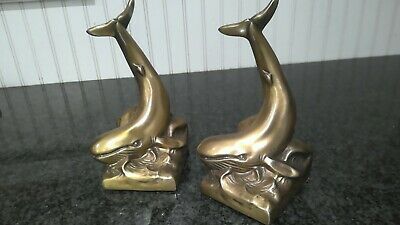
Brass Ship Bookends
Vintage Brass Sailboat Bookends Pair with Water Wave Design Nautical Heavy Maritime. Vintage pre-owned condition. A few scratches and patina. One bookend back does not stand up straight and has a small gap, hard to see at bottom. Possibly it may just need a better screw. Some like patina so I did not polish. The pair weighs 3 lb without packaging. Pair, Brass Sailboat Bookends, Brass Ships, Nautical Decor, Beach Decor, Approx 7 1/2' H x 5' W x 3 1/2' D, Likely 1970s VintageByLafontaine 5 out of 5 stars (836).
Welcome to Kahn Fine Antiques and Works of Art Catalogue
Next>
KAHN FINE ANTIQUES CATALOGUE
SEE ALL NEW AQUISITIONS! Antique Bookends| Nautical Antiques and Antique Ship ModelsAntique Furniture, Folk Art, and Needlework | Antique Scrimshaw and Whaling ItemsAntique Firearms, Swords, and Militaria | Clocks, Barometers, Sextants, and TelescopesAntique Paintings, Maps, Documents, Photos | Antique Boxes, Nantucket Baskets, BooksAntique Porcelain, Antique Glass, and Canes | Silver, Brass, Lamps, Jewelry and MetalwareAntique Presidential Items | New Collector's Antiques for Under $300Our Sold Antiques | Clearance Items!
Inventory ID:18383
ON SALE
An important pair of Paul Bellardo hand sculpted bookends depicting dolphins circa 1965
Inventory ID:15064
A fine single 'Lincoln in the chair' bookend by the Philadelphia Mfg. Co. circa 1960
Inventory ID:15063
A FABULOUS pair of Abraham Lincoln bookends made by Jennings Brothers of Bridgeport, CT., circa 1925
Inventory ID:15058
A pair of American Eagle bookends with a connection to President John F. Kennedy made by the Marion Bronze Company circa 1935
Inventory ID:15057
An extremely fine pair of John Harvard bookends circa 1930
Inventory ID:15056
A fine single bookend depicting the statue of the Gloucester Fisherman circa 1928
Inventory ID:15053
A pair of 'Lincoln in the chair' bookends made by Nuart in 1924
Inventory ID:15051
A fine pair of Indian hunter and his dog bookends by Jennings Brothers circa 1935
Inventory ID:15050
A pair of brass patriotic '!776' American spread wing eagle bookends
Inventory ID:15043
A charming pair of antique bookends depicting a pirate sitting on a treasure chest circa 1910-1920
Inventory ID:15042
A nice pair of Pirate bookends by the Pompeian Bronze Company circa 1930-1940
Inventory ID:14955
ON SALE
A charming pair of Pirate sitting on a treasure chest bookends circa 1928
Inventory ID:19009
Sold
A pair of George Washington bookends circa 1930
Inventory ID:18203
Sold
A pair of cast iron 'Old Salt' bookends circa 1920 by Littco Mfg.
Inventory ID:18202
Sold
A wonderful pair of bronze 'Humpback' whale bookends
Inventory ID:18034
Sold
A very fine pair of German Shepherd bookends made by Jennings Brothers of Meriden, CT., circa 1930
Inventory ID:15081
Sold
A Pair of antique Bradley & Hubbard Bookends in the form of a Hindu archway
Inventory ID:15080
Sold
A Pair of Antique bookends by Bradley & Hubbard circa 1925 depicting a Phoenician or Roman trading ship
Inventory ID:15079
Sold
A pair of Antique Bookends by Bradley & Hubbard depicting John Alden & Priscilla circa 1910
Inventory ID:15078
Sold
A Pair of Bradley & Hubbard Antique Bookends circa 1910
Click here to view our Newest Aquisitions Available in the Kahn Fine Antiques and Works of Art Catalogue
Brass Ship Bookends
(Items 1 to 20 of 501)
Last>>
*** New Aquisitions *** Antique Bookends| Nautical Antiques and Antique Ship ModelsAntique Furniture, Folk Art, and Needlework | Antique Scrimshaw and Whaling ItemsAntique Firearms, Swords, and Militaria | Clocks, Barometers, Sextants, and TelescopesAntique Paintings, Maps, Documents, Photos | Antique Boxes, Nantucket Baskets, BooksAntique Porcelain, Antique Glass, and Canes | Silver, Brass, Lamps, Jewelry and MetalwareOur Sold Antiques

0 notes
Link
It is not to angels that he has subjected the world to come, about which we are speaking. But there is a place where someone has testified: “What is mankind that you are mindful of them, a son of man that you care for him? You made them a little lower than the angels; you crowned them with glory and honor and put everything under their feet.”In putting everything under them, God left nothing that is not subject to them. Yet at present we do not see everything subject to them. But we do see Jesus, who was made lower than the angels for a little while, now crowned with glory and honor because he suffered death, so that by the grace of God he might taste death for everyone.Hebrews 2:5-9 NIV The pastor started off his 'sermon' with an exultation of Christ. That he is high above the angels who are only ministering servants sent to serve those who will inherit salvation. In this passage, and through the rest of this chapter, the pastor changes his perspective. Now, rather than looking at the divinity of Christ, he looks at his humanity. The World To Come This short passage starts with a reference to the world to come. "It is not to angels that he has subjected the world to come, about which we are speaking." What is this 'future' world that he is speaking about? Hebrews 1:10-12 would seem to allude to this world to come. That passage is talking about the eternality of God, comparing it with the temporary nature of this present creation. This present creation that will perish and be changed. Hebrews 1:14 is more explicit. Angels are sent to minister to those who will inherit salvation. The author of Hebrews looks at salvation here from a future perspective. It is something that we are looking forward to. And as he goes on in Hebrews 2:3-4, he references a salvation that was first announced by the Lord and validated by the signs that God performed. This future world is our ultimate salvation. It is deliverance from this temporary life in the flesh and into the eternal presence of God. This world was foreshadowed by the garden in Genesis 2. And we find it foretold in Revelation 21-22. Between these bookends is the life that we live here in the flesh. It must have been tempting for the pastor's Jewish audience to exalt angels as powerful and holy creatures who serve God. But the pastor points out here that this future world of salvation is not for the angels. They are not the fulfillment of God's purpose in creation. Psalm 8 The eighth psalm is one of praise to God for what he has done. In particular for God's creation. And in it David expresses wonder over man's place within the creation. In the psalm, David marvels that God has made man a little lower than the angels, crowned him with glory, and make him ruler over all other living things. I believe this psalm looks back to Genesis 1:26-28 and God's creation of humanity. In that creation, God commissioned humanity to rule over all of the other living creatures on the earth. I believe that David, when he wrote this psalm, surely had in mind the privilege and exalted position that God had given to humanity. But, like many other Old Testament passages, the New Testament author sees hints of the coming messiah. I think of particular significance to Hebrews is the mention of angels in this psalm. Mankind was made lower than the angels. This is in contrast to the relationship between Christ and the angels described in the first chapter. There you see Christ exalted high above the angels. Almost Everything Under Our Feet In Genesis, God creates humanity and gives him authority over the rest of the creation. Then, in Psalm 8, David marvels at God's work. In particular that he has placed man over the rest of the creation. And yet, the pastor says, we do not yet see everything subject to humanity. What is missing; what is not subject to man? Death! Death does not submit to the authority of humanity. In the end, it takes us all. So the submission of the created order to man is not yet full and complete. But, We See Jesus I think this is the key part of these five verses. We have a humanity that was given authority, but has not yet fully attained that authority. Things are incomplete. But! The author does not leave us with the picture of a creation not fully submitted. On one hand we see a creation not in submission. But, on the other hand, we see Jesus. Jesus, who, for a time, was made lower than the angels. The pastor here points us back to Psalm 8 and the place of humanity. That one who was exalted high above the angels became one of us in order to do for us what we could not do ourselves. Crowned With Glory and Honor Jesus was for a time, lower than the angels. But now he is crowned with glory and honor. Crowned with glory and honor would seem to be the condition described in the the first chapter of Hebrews. And indeed he was above all of creation. But something else has happened here. It is because Jesus suffered death that he is now glorified and exalted. There are two ways to look at the cross and Jesus' crucifixion. The world looks at it as the tragic end to a life. From that perspective, the cross represents defeat. But the Bible, and Hebrews in particular, tells us quite a different story. Jesus was crowned because he suffered. Far from being a tragic end to his life, the cross was Jesus' victory over sin and death. The cross was Jesus' coronation. When Jesus was lifted up onto the cross, he ascended to his throne in heaven. He defeated his enemies and began his reign over his kingdom. Tasting Death for Everyone In Jesus' death he tasted death for all of us so that we would not have to. Death is that final enemy that has not submitted to humanity. But Jesus death fixed that. He brought death into submission. Death is no longer to be feared. Even though we still face death while in physical bodies, death now is only an entrance into eternity future. But, who has he tasted death for? This passages says that he tasted it for everyone. 'Everyone' here is a word that is all inclusive. It literally means everyone or everything, all, or whole. In order to limit the scope of Jesus' atoning death in this passage you would need to read something into it beyond that the author actually says. Jesus tasted death for every single person in the world. But does that equate to universalism; that all people will ultimately be saved? I do not believe so. On January 1, 1863, Abraham Lincoln issued the Emancipation Proclamation, declaring all slaves in the United States to be free. A war had to be fought and won before this become a reality. But that war did come to an end and freedom was granted to the slaves. But did all the slaves become free? No, there were those who choose to remain in slavery. The war was fought for them, but in the end it had no impact on their lives. In the same way, Jesus experienced death for all. But many choose not to accept the liberty that Jesus dies to procure for them.
0 notes
Text
Arplis - News: Virtual reality pops up at Denver museums, festivals and even VR escape rooms
Samantha Doerge was shutting down the Denver Film Festival’s virtual reality floor last fall when a woman shuffled in with her elderly mother, asking if Doerge would run the hour-long, three-part “Spheres” program one last time.
” ‘We’re sorry to be here so late,’ ” Doerge, a programming coordinator for the festival, remembers the woman telling her. ” ‘But my mother has wanted to be an astronaut all of her life and couldn’t because of an astigmatism. This is as close as she’ll ever get.’ Of course, I was more than happy to stay open for her.”
“Spheres,” which has captivated audiences and critics at the Telluride, Sundance and Venice film festivals, invites viewers to don the now-standard virtual reality goggles and take a celebrity-narrated trip through the cosmos. Created by Eliza McNitt and executive produced by Darren Aronofsky (“Black Swan”), “Spheres” employs digital animation to render the big bang and other astronomical events in spectacular detail, bringing participants as close to space travel as they’ll likely ever get.
The effect of narrative experiences like “Spheres” is uniquely powerful, said Doerge, who has helped program the Denver Film Festival’s virtual reality offerings the last couple of years. She also assisted with the debut of “Spheres” as Telluride’s first-ever VR offering in 2018.
“When this woman, who had to have been 85 or 90 years old, came out of it, she was just crying,” Doerge said. “The word she used was ‘magical.’ “
Long in the wings, VR has increasingly inched into the spotlight at festivals, museums, theaters and bars as its complex technology — bulky headsets, servers and software — has grown rapidly cheaper and more compact. When it returns Oct. 30-Nov. 11, the Denver Film Festival will offer eight separate virtual reality experiences at its Festival Annex at the McNichols Building, with another four provided by its VR sponsor, Boulder-based Reality Garage, a lounge and makerspace that produces its own VR content.
In recent years, the entrance of Facebook, Microsoft, Sony and other global players into the industry has rapidly accelerated VR’s consumer-friendliness while spurring artists and programmers to dream up new interactive concepts. Investors are also licking their pixelated chops at forecasts that predict the global market will increase from about $8 billion in 2018 to $44.7 billion in 2024, according to a recent report.
And as Doerge knows, virtual reality isn’t just for gaming and entertainment. Her husband, a technology specialist for Children’s Hospital Colorado, uses VR to transport sick kids from the confines of their beds to Altspace, a social platform that offers simulated meet-ups and activities.
“It’s there so kids can do things like have dinner with their families,” Doerge said. “These are mundane things we take for granted, but sick kids can check into Altspace and no longer feel this alienation from their childhoods.”
Of course, that requires the other participants to don VR headsets, too. But as people get used to seeing VR at places such as Wings Over the Rockies Air & Space Museum (which offers simulated plane rides), the Denver Museum of Nature & Science (in its new “Extreme Sports” installation), and the casino-like environs of Dave & Buster’s, the idea of bringing it into the living rooms gets less intimidating.
In other words: Much like table tennis or life-sized Jenga, it’s another trendy entertainment — albeit a pricey, fast-evolving one.
Related Articles “Star Wars: The Last Jedi” director Rian Johnson will be at opening night of Denver Film Fest “Knives Out,” “Marriage Story” will bookend Denver Film Fest’s 2019 red carpets Denver Film Festival reveals 2019 dates, tribute to late artistic director Brit Withey
“There’s no headset at home, but that’s been a request for Christmas,” said Mandi Hoffman, a Denver mother overseeing nine middle-schoolers last week at VR Social, a virtual reality arcade in Broomfield. “We don’t have a lot of space, so I’m a little worried about how it would work. But we love VR. We visited a VR art exhibit in Montreal, which was incredible, and we like to do the VR games at the Punch Bowl Social on South Broadway.”
Hoffman’s son, Henry, was there celebrating his 11th birthday with school buddies — all of them playing a sci-fi combat game and loosely tethered to the ceiling by cords on their headsets. The scene prompted Hoffman’s daughter Millie to acknowledge a common criticism of VR: Why should kids hook themselves up to machines for entertainment, even in poor weather, when indoor playgrounds, trampoline parks and “American Ninja Warrior”-style obstacle courses are so widely available these days?
“Clearly from the outside, when you don’t have the headset on, it looks completely different,” Millie, 14, said as she stood in the bare-bones, LED-lit arcade space. Next door, a quintet of near-motionless people sat in a darkened room playing a virtual escape-room game. “But once you get inside it’s a heightened reality — fantasy games, fighting off robots, things you don’t get to experience when you go to (a business like) Jump Street or Lava Island.”
Basic VR emulators such as Google’s Daydream Viewer, which mimics the look of VR by turning your phone into a display screen, retail for about $100. Gaming-friendly VR headsets, like the new Oculus Quest, range from $400 to $1,500 for crisp, stereoscopic imagery that offers the illusion of three-dimensional interactivity.
Provided by Wings Over the RockiesVisitors to the Blue Sky Gallery in Centennial experience a virtual plane ride as part of Wings Over the Rockies’ VR programming. (Provided by Wings Over the Rockies)
That’s a pricey buy-in compared to a board game or night at the movies, but nothing can match the experience, proponents say. Blotting out natural stimuli with eyepieces and headphones is one thing, but adding to the sensory immersion with physical elements, motion-tracking, controllers and other features can take something like a video-game escape room to new heights of interactivity — and meaning.
“As a technology, it’s extremely exciting for us,” said Lauren Cason, creative director of Interactive at Santa Fe-based art company Meow Wolf. “If you’ve ever been to a VR exhibit or seen a demo, you’re going to be sitting in a blank room with a thing on your face, and it might not have much to do with the space you’re in.”
Meow Wolf, however, has been busy researching and developing new XR (or “extended reality”) concepts that will allow guests to blur the lines between their physical and digital worlds at the company’s interactive art-playgrounds. That includes its forthcoming Denver location, a 90,000-square-foot, $60 million, four-story complex under construction at Interstate 25, Colfax Avenue and Auraria Parkway viaducts.
“There’s technology out there — like HoloLens, Magic Leap, Spark AR, Apple’s AR (augmented reality) kit, ARCore and others — that allows you to superimpose three-dimensional digital objects onto real-world objects, and then have an interplay between those real and fabricated worlds,” said Cason, a veteran of MIT and Apple. “We believe that’s the future of these immersive, experiential spaces.”
Or the present. Last week, the Washington, D.C., location of Madame Tussauds wax museum announced its new “Alive in AR” augmented-reality experience that uses smartglass technology to animate its celebrity and historical statues. That includes everyone from Abraham Lincoln and Martin Luther King Jr. to Tyra Banks, who come to life with the aid of 360-degree video, holograms and custom soundscapes.
“While some attractions have experimented with AR on handheld smartphones, Madame Tussauds D.C. is embracing the more immersive and hands-free smartglass technology,” said ARtGlass founder and CEO Greg Werkheiser in a press statement.
So how long will it be before we see that in Denver? Possibly sooner than you think, Meow Wolf officials said, although they declined to reveal specific details about Denver-based XR offerings, or say how much the company is investing in those technologies.
“We’ve had several interesting tests and successes that are pointing toward something larger,” said Emily Montoya, a co-founder of Meow Wolf. “A couple of years ago, we took a VR experience called The Atrium to South by Southwest, which allowed people to experience our (Santa Fe-based) House of Eternal Return. And last year we took Navigator (a ‘mixed-reality sculpture’) to L.A.’s L.E.A.P. Con, which was sort of a giant-robot headset experience.”
Navigator, which invited participants to climb behind the controls of a car-sized, spider-like robot, combined VR, AR and physical features to create the experience of operating a giant robot in real time. This sort of “spatial computing” is a clear emphasis for the company moving forward, Montoya said.
“One of our biggest interests is incorporating theatrical storylines into the technology,” she said. “We already have the capacity to create such fantastic physical spaces and controls, so why not start there?”
The same criticisms that detractors have for VR — its largely sedentary nature, its contrived imagery and sound — could just as easily be leveled at all manner of film and gaming, defenders say. And VR’s unlimited adaptability in the virtual space means, for example, that deaf people can use sign language to communicate with one another, or that wheelchair-bound people can fulfill dreams of walking, running and even flying.
Recent advances have broadened VR’s applications to the point of mainstream appeal, from VR headsets going wireless to virtual learning, workplace training and even theater – such as last month’s “Virtue of Reality” production from the University of Colorado’s Experience Design MFA students.
There’s limitless room for experimentation, backers promise. Just not, you know, in the literal sense.
“At my core, I am a cinephile and I love movies,” said Denver Film Fest’s Doerge. “But one thing that’s so exciting about VR is that your brain doesn’t make a distinction between what’s happening to you and what’s happening in the headset, so the emotional response you can get from a VR experience is very powerful. I have watched grown men burst into tears because it was so captivating.”
She hopes to further evangelize for the format at the Denver Film Festival’s VR-focused panels at Civic Center’s McNichols Building on Nov. 9. One is a general creator panel, while the other explores its uses in pediatric health care.
Both are fundamentally rooted in storytelling, she said.
“One of the most successful and basic VR experiences out there is called Job Simulator,” Doerge said. “It’s also the first one I ever tried about four years ago. In it, I was basically a 7-Eleven cashier, but what shocked me was how consuming it was, because I almost had to reintegrate into my own reality after taking off the goggles. It’s been an uphill battle with VR into the film world, but whether it’s storytelling or escape, it has this unique ability to transport you, even when you’re fully aware that you’re wearing the headset.”
Subscribe to our weekly newsletter to get entertainment news sent straight to your inbox.
#TellurideFilmFestival #Museum #ThingsToDo #News #MeowWolf

Arplis - News
source https://arplis.com/blogs/news/virtual-reality-pops-up-at-denver-museums-festivals-and-even-vr-escape-rooms
0 notes
Photo
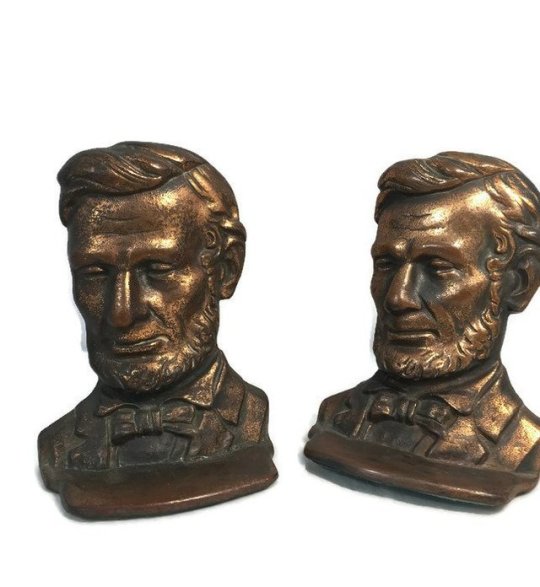
Antique Abe Lincoln Bookends, Abraham Lincoln, Presidential Collectible, Library Home Decor, Bookshelf Display, Office Decor, Cast Metal
0 notes
Photo
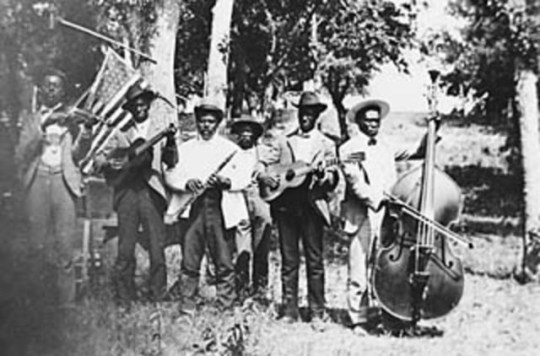
The Hiddedn History Of Juneteenth
One hundred fifty years ago today, the U.S. Army took possession of Galveston Island, a barrier island just off the Texas coast that guards the entrance to Galveston Bay, and began a late-arriving, long-lasting war against slavery in Texas. This little-known battle would endure for months after the end of what we normally think of as the Civil War. This struggle, pitting Texas freedpeople and loyalists and the U.S. Army against stubborn defenders of slavery, would become the basis for the increasingly popular celebrations of Juneteenth, a predominantly African-American holiday celebrating emancipation on or about June 19th every year.
The historical origins of Juneteenth are clear. On June 19, 1865, U.S. Major General Gordon Granger, newly arrived with 1,800 men in Texas, ordered that “all slaves are free” in Texas and that there would be an “absolute equality of personal rights and rights of property between former masters and slaves.” The idea that any such proclamation would still need to be issued in June 1865 – two months after the surrender at Appomattox – forces us to rethink how and when slavery and the Civil War really ended. And in turn it helps us recognize Juneteenth as not just a bookend to the Civil War but as a celebration and commemoration of the epic struggles of emancipation and Reconstruction.
By June 19, 1865, it had been more than two years since President Abraham Lincoln had issued the Emancipation Proclamation, almost five months since Congress passed the 13th Amendment, and more than two months since General Robert E. Lee surrendered his Confederate army at Appomattox Court House. So why did Granger need to act to end slavery?
To answer that question, we have to look back at slavery, the Civil War, and Texas’ peculiar place in both histories. During the Civil War, white planters forcibly moved tens of thousands of slaves to Texas, hoping to keep them in bondage and away from the U.S. Army. Even after Lee surrendered, Confederate Texans dreamed of sustaining the rebel cause there. Only on June 2, 1865, after the state’s rebel governor had already fled to Mexico, did Confederate Lieutenant General Edmund Kirby Smith agree to surrender the state. For more than two weeks, chaos reigned as people looted the state treasury, and no one was certain who was in charge.
In that chaos, many African-Americans fled, some across the river in Mexico, a less-remembered pathway to freedom in the decades before the Civil War. Others launched strikes or refused to work. But in a state where whites outnumbered slaves more than two-to-one, planters and ranchers did everything in their power to sustain slavery wherever they could.
Granger’s arrival on June 19 marked the first effective intervention of the United States in Texas on the side of ending slavery. So when Granger issued his proclamation in Galveston, it was no abstract or symbolic statement against slavery and rebellion; he was striking a blow against slavery itself in the place where it remained most firmly entrenched in June 1865.
But what did Granger’s proclamation mean? One oft-told myth has it that Texans simply did not know that slavery had ended. What Granger brought, in this telling, was good news. But if we listen to the words of someone like Felix Haywood, a slave in Texas during the Civil War, we see that this was not so. “We knowed what was goin’ on in [the war] all the time,” Haywood later remembered. At emancipation, “We all felt like heroes and nobody had made us that way but ourselves.”
If Haywood and other enslaved people knew about the Emancipation Proclamation, what exactly did the events of June 19, 1865 mean? Here we face a key forgotten reality about the end of the Civil War and slavery that has been shrouded in the mythology of Appomattox. The internecine conflict and the institution of slavery could not and did not end neatly at Appomattox or on Galveston Island. Ending slavery was not simply a matter of issuing pronouncements. It was a matter of forcing rebels to obey the law. To a very real extent, the Emancipation Proclamation and the 13th Amendment amounted to promissory notes of freedom. The real on-the-ground work of ending slavery and defending the rudiments of liberty was done by the freedpeople in collaboration with and often backed by the force of the US Army.
Granger’s proclamation may not have brought news of emancipation but it did carry this crucial promise of force. Within weeks, fifty thousand U.S. troops flooded into the state in a late-arriving occupation. These soldiers were needed because planters would not give up on slavery. In October 1865, months after the June orders, white Texans in some regions “still claim and control [slaves] as property, and in two or three instances recently bought and sold them,” according to one report. To sustain slavery, some planters systematically murdered rebellious African-Americans to try to frighten the rest into submission. A report by the Texas constitutional convention claimed that between 1865 and 1868, white Texans killed almost 400 black people; black Texans, the report claimed, killed 10 whites. Other planters hoped to hold onto slavery in one form or another until they could overturn the Emancipation Proclamation in court.
Against this resistance, the Army turned to force. In a largely forgotten or misunderstood occupation, the Army spread more than 40 outposts across Texas to teach rebels “the idea of law as an irresistible power to which all must bow.” Freedpeople, as Haywood’s quote reminds us, did not need the Army to teach them about freedom; they needed the Army to teach planters the futility of trying to sustain slavery...
continue reading HERE
25 notes
·
View notes
Link
Check out this listing I just added to my Poshmark closet: Bookend President Abraham Lincoln vintage copper coating heavy Cast metal posh.
0 notes
Text
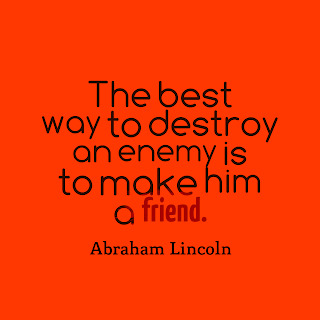
*****
"I'M ONLY HUMAN" is my concocted self-defense against my failure to live up to the intent of this Quote by Lincoln. I tend to want to cut off HIS nose (not Lincoln's nose! lol) to spite MY face. It's sad and a little bit embarrassing, and yes, the truth hurts.
My Pollyanna Defense died on the vine. GRUDGE is an Animal and I have raised it well.
Better sober than drunk. Better today than yesterday. Better tomorrow, I can only hope, my friend.
*****
ALL DRINKING ASIDE: The Destruction, Deconstruction & Reconstruction of an Alcoholic Animal
Find it on Amazon. Book it here: http://amzn.to/1bX6JyO
#alcoholism #addiction #recovery #books
All Drinking Aside bookends each of its 90 Chapters with Quotes by the Famous, Infamous & Anonymous.
This Quote by Abraham Lincoln (pictured) opens Chapter 86 (Memory-Go-Rounds) of All Drinking Aside.
Resolve to read it. Explore your own mind within its pages. Check out the 5 Star Reviews on the Amazon page while you're there: http://amzn.to/1bX6JyO Enjoy.
0 notes
Photo
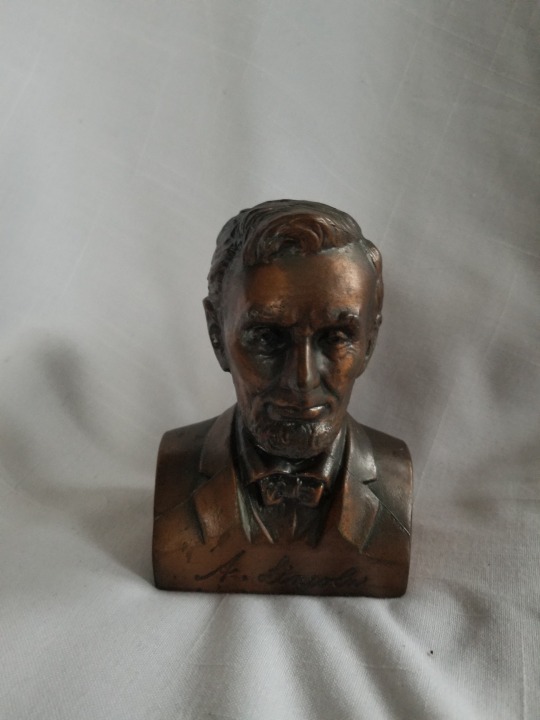


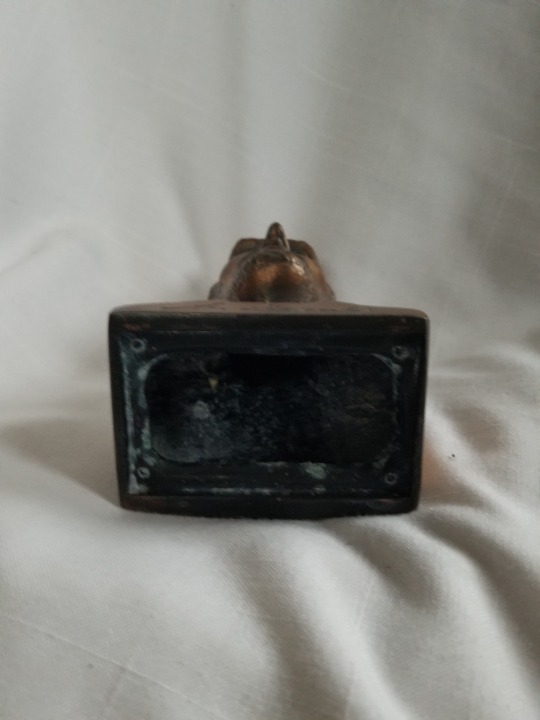
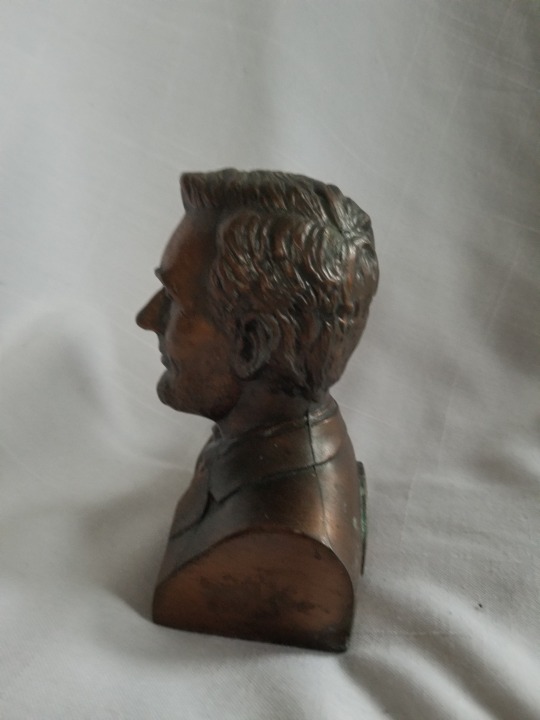
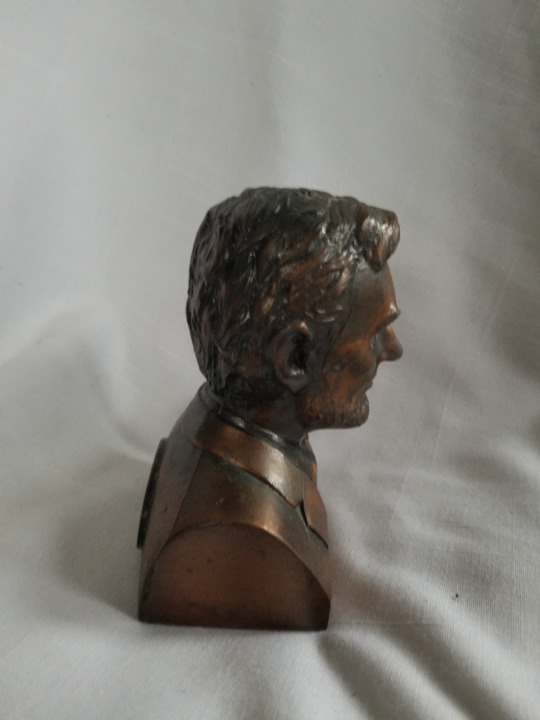


presidential bust Abraham Lincoln metal coin bank figurine bookend
1 note
·
View note
Text
From Famous to Philosophical! The 100 Best Quotes from Criminal Minds
Mike Bloom Mike Bloom
3 weeks ago
Screen Grab/CBS
For 15 seasons and more than 300 episodes, Criminal Minds has kept fans on the edges of our seats with its pulse-pounding criminal investigations and gripping characters—several inspired by disturbingly real crimes. From the beginning, the CBS series set itself apart from other ripped-from-the-headlines procedurals (looking at you, Law & Order) by beginning and ending nearly every episode with famous quotes from historical, philosophical or cultural figures. The bookend quotes have been a great way to get fans into the fast-thinking mindsets of characters like Spencer Reid (Matthew Gray Gubler) and Jennifer “J.J.” Jareau (A.J. Cook), while also bringing forward quotes that have served as guiding principles for years.
In honor of Criminal Minds‘ 15 outstanding seasons, which ended Feb. 20, 2020, Parade.com has compiled a list of 100 of the best opening and closing quotes from the previous 14 seasons. Here are the best Criminal Minds quotes.
Shemar Moore as Derek Morgan, Danny Glover as Hank CBS Broadcasting
Shemar Moore as Derek Morgan, Danny Glover as Hank (CBS Broadcasting)
Criminal Minds Season 1 Quotes
1. “The belief in a supernatural source of evil is not necessary. Men alone are quite capable of every wickedness.” —Joseph Conrad
Referenced in “Extreme Aggressor” (Season 1, Episode 1)
2. “The farther backward you can look, the farther forward you can see.” —Winston Churchill
Referenced in “Extreme Aggressor” (Season 1, Episode 1)
3. “Try again, fail again. Fail better.” —Samuel Beckett
Referenced in “Extreme Aggressor” (Season 1, Episode 1)
4. “Imagination is more important than knowledge. Knowledge is limited. Imagination encircles the world.” —Albert Einstein
Referenced in “Plain Sight” (Season 1, Episode 4)
5. “Birds sing after a storm. Why shouldn’t people feel as free to delight in whatever sunlight remains to them?”—Rose Kennedy
Referenced in “Plain Sight” (Season 1, Episode 4)
Related: The 150 Best Quotes About Life
6. “Nothing is so common as the wish to be remarkable.” —William Shakespeare
Referenced in “L.D.S.K.” (Season 1, Episode 6)
7. “The question that sometimes drives me hazy: Am I, or the others crazy?” —Albert Einstein
Referenced in “Derailed” (Season 1, Episode 9)
8. “What we do for ourselves dies with us. What we do for others and the world remains and is immortal.” —Albert Pine
Referenced in “Riding the Lightning” (Season 1, Episode 14)
9. “In the end, it’s not the years in your life that count. It’s the life in your years.” —Abraham Lincoln
Referenced in “Unfinished Business” (Season 1, Episode 15)
Related: See the Criminal Minds Cast Through the Years
Criminal Minds Season 2 Quotes
10. “It has been said that time heals all wounds. I do not agree. The wounds remain. In time, the mind, protecting its sanity, covers them with scar tissue, and the pain lessens, but it is never gone.” —Rose Kennedy
Referenced in “The Fisher King, Part 2” (Season 2, Episode 1)
11. “Man is least himself when he talks in his own person. Give him a mask, and he will tell you the truth.” —Oscar Wilde
Referenced in “Psychodrama” (Season 2, Episode 4)
12. “Although the world is full of suffering, it is also full of overcoming it.” —Helen Keller
Referenced in “Aftermath” (Season 2, Episode 5)
13. “It’s not so important who starts the game, but who finishes it.” —Erich Fromm
Referenced in “North Mammon” (Season 2, Episode 7)
14. “In order to learn the most important lessons in life, one must each day surmount a fear.” —Ralph Waldo Emerson
Referenced in “Lessons Learned” (Season 2, Episode 10)
15. “All secrets are deep. All secrets become dark. That’s in the nature of secrets.”—Corey Doctorrow
Referenced in “Profiler, Profiled” (Season 2, Episode 12)
16. “The life of the dead is placed in the memory of the living.” —Cicero
Referenced in “Fear and Loathing” (Season 2, Episode 16)
17. “There can be no good without evil.” —Russian proverb
Referenced in “Honor Among Thieves” (Season 2, Episode 20)
Criminal Minds Season 3 Quotes
18. “Out of suffering have emerged the strongest souls. The most massive characters are seared with scars.” —Khalil Gibran
Referenced in “The Perfect Storm” (Season 3, Episode 2)
19. “Love all. Trust a few. Do wrong to none.” —William Shakespeare
Referenced in “Penelope” (Season 3, Episode 9)
20. “A woman must not depend upon the protection of man, but must be taught to protect herself.” —Susan B. Anthony
Referenced in “Tabula Rasa” (Season 3, Episode 19)
Criminal Minds Season 4 Quotes
21. “We all die. The goal isn’t to live forever, the goal is to create something that will.” —Chuck Palahniuk
Referenced in “The Angel Maker” (Season 4, Episode 2)
22. “We are all brothers under the skin, and I, for one, would be willing to skin humanity to prove it.” —Ayn Rand
Referenced in “Brothers in Arms” (Season 4, Episode 10)
Behind the scenes with Paget Brewster, Matthew Gray Gubler, Thomas Gibson (seated), A.J. Cook, Shemar Moore, and Joe Mantegna (seated) Cliff Lipson/CBS
Behind the scenes with Paget Brewster, Matthew Gray Gubler, Thomas Gibson (seated), A.J. Cook, Shemar Moore, and Joe Mantegna (seated) (Cliff Lipson/CBS)
Criminal Minds Season 5 Quotes
23. “So much of what is best in us is bound up in our love of family, that it remains the measure of our stability because it measures our sense of loyalty.” —Haniel Long
Referenced in “100” (Season 5, Episode 9)
24. “There is a sacredness in tears. They are not the mark of weakness, but of power. They are messengers of overwhelming grief and unspeakable love.” —Washington Irving
Referenced in “Retaliation” (Season 5, Episode 11)
25. “Oh what a tangled web we weave, when first we practice to deceive.”—Sir Walter Scott
Referenced in “Parasite” (Season 5, Episode 14)
26. “Hope is the thing with feathers, that perches in the soul, and sings the tune without the words, and never stops at all.”—Emily Dickinson
Referenced in “Mosley Lane” (Season 5, Episode 16)
27. “The single biggest problem with communication is the illusion that it has taken place.”—George Bernard Shaw
Referenced in “The Internet is Forever” (Season 5, Episode 22)
Thomas Gibson, Joe Mantegna and Shemar Moore talk behind the scenes with Indianapolis Colts star Dallas Clark, who guest stars as San Diego Police Officer Austin Kent. Adam Rose/CBS
Thomas Gibson, Joe Mantegna and Shemar Moore talk behind the scenes with Indianapolis Colts star Dallas Clark, who guest stars as San Diego Police Officer Austin Kent. (Adam Rose/CBS)
Criminal Minds Season 6 Quotes
28. “No man chooses evil because it is evil he only mistakes it for happiness, the good he seeks.”—Mary Wollstonecraft Shelley
Referenced in “Corazón” (Season 6, Episode 12)
29. “The best and most beautiful things in the world cannot be seen or even touched—they must be felt with the heart.”—Helen Keller
Referenced in “Corazón” (Season 6, Episode 12)
30. “And yet to every bad there’s a worse.”—Thomas Hardy
Referenced in “Supply and Demand” (Season 6, Episode 24)
Morgan (Shemar Moore), Det. William LaMontagne Jr. (Josh Stewart), JJ (A.J. Cook) and Prentiss (Paget Brewster) try to foil a gang of serial killing bank robbers in Washington, D.C., as the BAU team tries to negotiate the situation unfolding inside the bank, on the two-hour seventh season finale of CRIMINAL MINDS, Wednesday, May 16 (9:00-10:00 PM, ET/PT) on the CBS Television Network. Photo: Monty Brinton/CBS
Morgan (Shemar Moore), Det. William LaMontagne Jr. (Josh Stewart), JJ (A.J. Cook) and Prentiss (Paget Brewster) try to foil a gang of serial killing bank robbers in Washington, D.C., as the BAU team tries to negotiate the situation unfolding inside the bank, on the two-hour seventh season finale of CRIMINAL MINDS, Wednesday, May 16 (9:00-10:00 PM, ET/PT) on the CBS Television Network. Photo: (Monty Brinton/CBS)
Criminal Minds Season 7 Quotes
31. “Find the place inside where there’s joy, and the joy will burn out the pain.”—Joseph Campbell
Referenced in “Hope” (Season 7, Episode 8)
32. “Love is giving someone the ability to destroy you, but trusting them not to.” —Unknown
Referenced in “I Love You Tommy Brown” (Season 7, Episode 17)
33. “To the living, we owe respect. But to the dead, we owe only the truth.” —Voltaire
Referenced in “Profiling 101” (Season 7, Episode 22)
Thomas Gibson (Aaron Hotchner) and Joe Mantegna (David Rossi) CBS Broadcasting
Thomas Gibson (Aaron Hotchner) and Joe Mantegna (David Rossi) (CBS Broadcasting)
Criminal Minds Season 8 Quotes
34. “One of the deep secrets in life is that all that is really worth doing is what we do for others.” — Lewis Carroll
Referenced in “Through the Looking Glass” (Season 8, Episode 3)
35. “The greatest good you can do for another, is not to share your own riches, but to reveal to him, his own.” —Benjamin Disraeli
Referenced in “The Apprenticeship” (Season 8, Episode 6)
36. “The bond that links your true family is not one of blood, but of respect and joy in each other’s life.” —Richard Bach
Referenced in “Brothers Hotchner” (Season 8, Episode 23)
37. “Death ends a life, not a relationship.” —Mitch Albom
Referenced in “In Blood” (Season 9, Episode 6)
38. “There is no terror after the bang of the gun; only the anticipation in it.” —Alfred Hitchcock
Referenced in “The Return” (Season 9, Episode 8)
Kirsten Vangsness as Penelope Garcia CBS Broadcasting
Kirsten Vangsness as Penelope Garcia (CBS Broadcasting)
Criminal Minds Season 9 Quotes
39. The universe doesn’t like the secrets. It conspires to reveal the truth to lead you to it.” —Lisa Unger
Referenced in “Strange Fruit” (Season 9, Episode 9)
40. Forgiveness does not change the past but it does enlarge the future.” —Paul Boese
Referenced in “The Road Home” (Season 9, Episode 13)
41. “Beware the fury of a patient man.” —John Dryden
Referenced in “The Road Home” (Season 9, Episode 13)
42. “When you look into an abyss…The abyss looks into you.” —Nietzsche
Referenced in “200” (Season 9, Episode 14)
43. “There is no footprint too small to leave an imprint on this world.”—Unknown
Referenced in “Gabby” (Season 9, Episode 16)
44. “It is more important to know what sort of person has a disease that to know what sort of disease a person has.”—Hippocrates
Referenced in “Rabid” (Season 9, Episode 18)
A.J. Cook as Jennifer "JJ" Jareau CBS Broadcasting
A.J. Cook as Jennifer "JJ" Jareau (CBS Broadcasting)
Criminal Minds Season 10 Quotes
45. “I remained too much in my head and ended up losing my mind.” —Edgar Allan Poe
Referenced in “X” (Season 10, Episode 1)
46. “Just because everything’s different doesn’t mean anything has changed.” —Irene Peter
Referenced in “X” (Season 10, Episode 1)
47. “We knew the world would not be the same. Some people laughed. A few people cried. Most people were silent.” —J. Robert Oppenheimer
Referenced in “A Thousand Sons” (Season 10, Episode 3)
48. “Getting rid of a delusion makes us wiser than getting hold of the truth.” —Ludwig Börne
Referenced in “The Itch” (Season 10, Episode 4)
49. “Deep vengeance is the daughter of deep silence.” —Vittorio Alfieri
Referenced in “If the Shoe Fits” (Season 10, Episode 5)
50. “Naïveté in grown ups is often charming. But when coupled with vanity, it is indistinguishable from stupidity.” —Eric Hoffer
Referenced in “Hashtag” (Season 10, Episode 7)
51. “There is a fellowship more quiet even than solitude, and which rightly understood, is solitude made perfect.” —Robert Louis Stevenson
Referenced in “Hashtag” (Season 10, Episode 7)
52. “How people treat you is their karma; how you react is yours.” —Wayne Dyer
Referenced in “The Boys of Sudworth Place” (Season 10, Episode 8)
53. “Our moral responsibility is not to stop the future, but to shape it. To channel our destiny in humane directions and to ease the trauma of transition.” —Alvin Toffler
Referenced in “The Boys of Sudworth Place” (Season 10, Episode 8)
54. “Change is the law of life. And those who look only to the past or present are certain to miss the future.” —John F. Kennedy (JFK Quotes)
Referenced in “Fate” (Season 10, Episode 9)
55. “When it comes to life, we spin our own yarn. And where we end up is really in fact where we always intended to be.” —Julia Glass
Referenced in “Fate” (Season 10, Episode 9)
56. “Remove my sin and I will be clean. Wash me and I will be whiter than snow.” —Psalm 51
Referenced in “Amelia Porter” (Season 10, Episode 10)
57. “Every man has his secret sorrows which the world knows not, and often times we call a man cold when he is only sad.” —Henry Wadsworth Longfellow
Referenced in “The Forever People” (Season 10, Episode 11)
58. “As life runs on, the road grows strange with faces new and near the end, the milestones into headstones change, ‘neath every one a friend.” —James Russell Lowell
Referenced in “Anonymous” (Season 10, Episode 12)
59. “The bitterest tears shed over graves are for words left unsaid and deeds left undone.” —Harriet Beecher Stowe
Referenced in “Nelson’s Sparrow” (Season 10, Episode 13)
60. “When a good man is hurt, all who would be called good must suffer with him.” —Euripides
Referenced in “Nelson’s Sparrow” (Season 10, Episode 13)
(Screen Grab/CBS)
61. “The truth is rarely pure and never simple.” —Oscar Wilde
Referenced in “Rock Creek Park” (Season 10, Episode 18)
62. “Coming together is a beginning. Keeping together is progress. Working together is success.”
—Henry Ford
Referenced in “Beyond Borders” (Season 10, Episode 19)
63. “We are made wise not by the recollection of our past, but by the responsibility of our future.” —George Bernard Shaw
Referenced in “A Place at the Table” (Season 10, Episode 20)
64. “Your memory is a monster. It summons with will of its own. You think you have a memory but it has you.” —John Irving
Referenced in “Mr. Scratch” (Season 10, Episode 21)
65. It is the man’s own mind, not his enemy or foe, that lures him to evil ways.” —Buddha
Referenced in “Protection” (Season 10, Episode 22)
66. “The world will not be destroyed by those who do evil, but by those who watch without doing anything.” —Albert Einstein
Referenced in “The Hunt” (Season 10, Episode 23)
67. “Life is about choices. Some we regret. Some we’re proud of. We are what we choose to be.” — Graham Brown
Referenced in “The Hunt” (Season 10, Episode 23)
Thomas Gibson as Aaron Hotchner, Kirsten Vangsness as Penelope Garcia and A.J. Cook as Jennifer "JJ" Jareau. (CBS)
Criminal Minds Season 11 Quotes
68. “Pleasure in the job puts perfection in the work.”—Aristotle
Referenced in “The Job” (Season 11, Episode 1)
69. “Courage is grace under pressure.” —Ernest Hemingway
Referenced in “The Job” (Season 11, Episode 1)
1 note
·
View note
Text
"Dixie" Bookends: Davis and Lincoln
“Dixie” Bookends: Davis and Lincoln

At his “inauguration” as President of the Confederacy, on February 18, 1861, Jefferson Davis heard a lively version of the song “Dixie” played in his honor.
Four years later, on April 11, 1865, Abraham Lincoln, speaking to a lively crowd outside the White House celebrating the news of Lee’s surrender, asked the crowd to join him in singing “Dixie” as a gesture toward reconciliation. It was to…
View On WordPress
0 notes